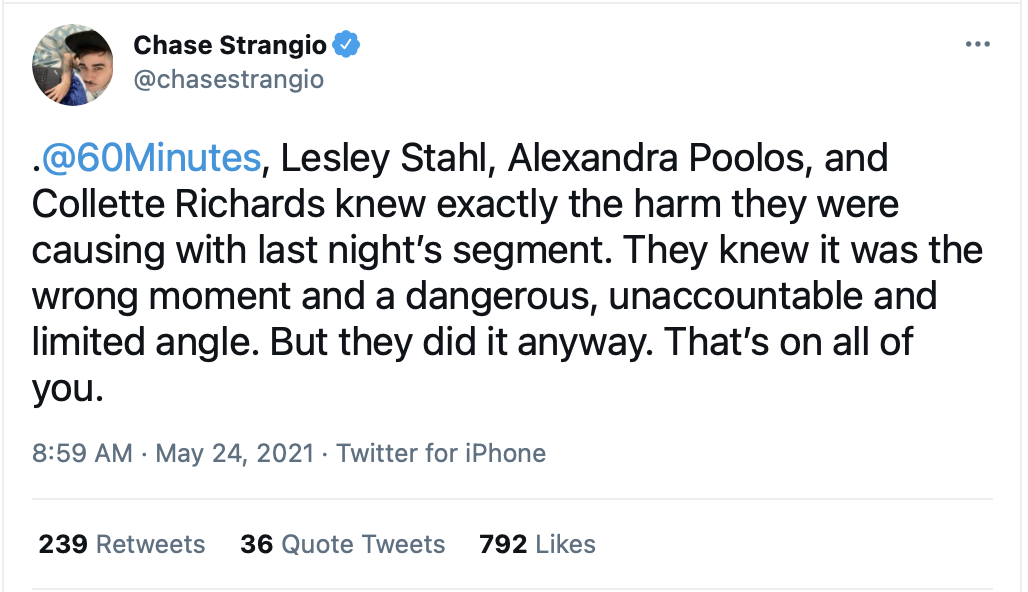Looking Back at the Censorship of the NY Post Story about Hunter Biden’s Laptop
I repeatedly encounter people who identify on the political left who insist that the Laptop found at a computer shop in October, 2020 was not Hunter Biden's laptop and that it was a Russian ploy to interfere with the U.S. Presidential election. The fact that these beliefs persist tells a sad story about the power the news media has to defraud its trusting audience.
This CBS Report from April 3, 2021 is recent confirmation of my belief that the laptop really was Hunter Biden's laptop. April 2021, long after the election was decided, was a politically convenient time and place for Hunter to deny that the laptop was his, but he didn't deny it. October, 2020, when the NY Post initially reported on the laptop, prior to the election, was also the perfect time for Hunter Biden to deny that it was his laptop, but he didn't deny it then either. He has never denied that it was his laptop. In fact, in the above CBS interview Hunter Biden stated that it is possible that it might have been his laptop. Watch the CBS video excerpt and observe Hunter Biden's demeanor. Is this the sort of person who would use his father's name to cut lucrative self-serving deals with foreign powers? Is that the sort of person who would write the emails found on the laptop. Seems apparent to me.
If this laptop and payoff had been about any of Trump's degenerate children, the media would have been all over it. The failure to cover this story is stunning jour - - - I almost wrote "journalistic malpractice," but it was far worse. It was an intentional and deliberate ongoing muti--news-outlet conspiracy to keep citizens from knowing something important that might affect their views on an upcoming election. Full disclosure: I voted for Biden and I was horrified by the thought that Trump might win a second term. There are more important principles at play, however, than the result of any one election. See Russell Brand's interview with Glenn Greenwald on this topic:
Glenn Greenwald has focused laserlike on this topic from the beginning. His felt need to tell the truth cost him his job at The Intercept, a news organization he founded. See "Article on Joe and Hunter Biden Censored By The Intercept: An attempt to assess the importance of the known evidence, and a critique of media lies to protect their favored candidate, could not be published at The Intercept." See also, Greenwald's article on the alleged Russian disinformation: "With News of Hunter Biden's Criminal Probe, Recall the Media Outlets That Peddled the "Russian Disinformation" Lie."
Were the materials on Hunter Biden's laptop the sorts of things the media should report on? The NY Post described some of the materials here:
In the final months of the heated 2020 presidential race, The Post revealed a trove of emails from Hunter Biden’s laptop that raised questions about his then-candidate father’s ties to his son’s foreign business ventures, including Burisma, a Ukrainian natural gas company linked to corruption.
The emails revealed that the younger Biden introduced a top Burisma executive to his father, then vice president, less than a year before the elder Biden admittedly pressured Ukrainian officials into firing a prosecutor who was investigating the company.
The never-before-revealed meeting is mentioned in a message of appreciation that Vadym Pozharskyi, a Burisma board adviser, sent Hunter on April 17, 2015.
An image of Hunter Biden found on the laptop at the center of The Post exposé The water-damaged MacBook Pro — which bore a sticker from the Beau Biden Foundation — was dropped off for repair at a Delaware computer shop in April 2019, but the individual who dropped it off never returned to pick it up.
. . .
In addition to his Ukrainian connections, other emails on the computer showed Hunter discussing potential business deals with China’s largest private energy company. One deal seemed to spark considerable interest with the younger Biden, who called it “interesting for me and my family.”
. ..
Hunter Biden’s position with the reportedly corrupt energy company — which paid him “as much as $50,000 per month” — “created an immediate potential conflict of interest” because his father was involved in US policy toward Ukraine, the report stated.
This is a complex story with fails in many directions, including Twitter's stunning decision to shut down the Twitter account of the NY Post so that it could not promote its blockbuster story.

